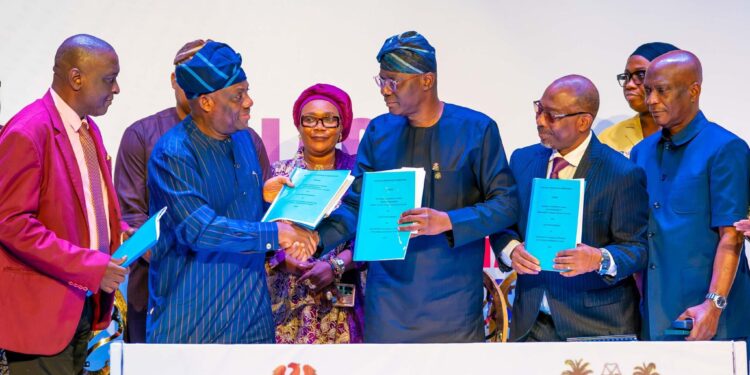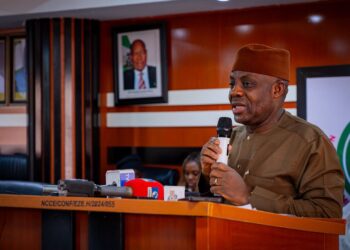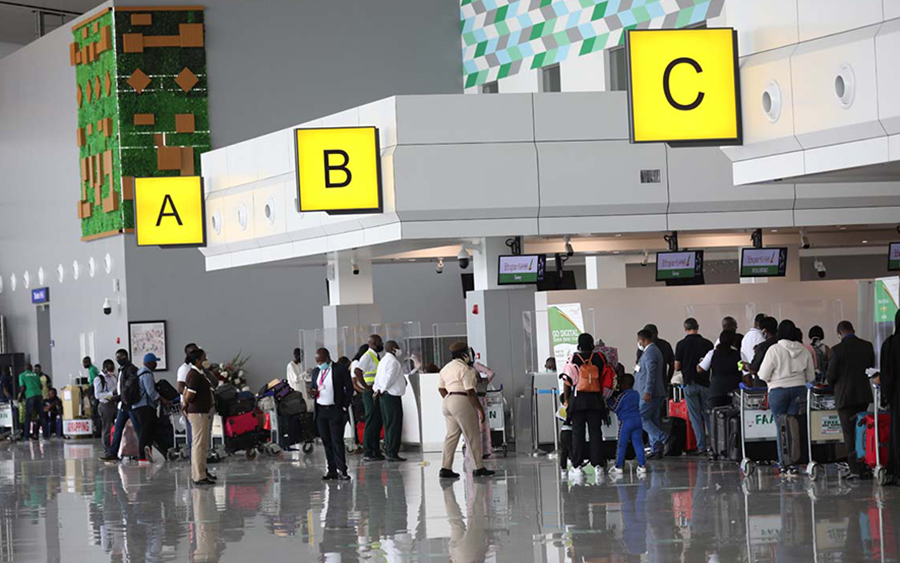Lagos State Government has officially transferred Epe General Hospital to the Federal Government, elevating it to the status of a Federal Medical Centre (FMC), Epe.
The handover was formalized on Thursday at the Landmark Event Centre, Oniru, Victoria Island, where Governor Babajide Sanwo-Olu signed a Memorandum of Understanding (MoU) on behalf of Lagos State, while the Honourable Minister of State for Health, Dr. Tunji Alausa, signed on behalf of the Federal Government.
With this transition, the newly designated FMC, Epe, will be equipped to offer a broad range of specialized medical services. These include paediatric care with a Neonatal Intensive Care Unit (NICU) for critical newborns, as well as a state-of-the-art Medical ICU for adults.
In addition, the centre will provide advanced surgical services including
- Open-heart surgeries
- Specialized obstetric and gynaecological services for high-risk pregnancies
- Modern emergency and trauma centre
- Nephrology services, including dialysis and kidney transplants
- Radiological services, such as CAT scans and MRI procedures
- Orthopaedic care, including spinal surgery options
- Burns and plastic surgery services.
Federal College of Complementary and Alternative Medicine
The Epe Federal Medical Centre will also serve as the clinical posting site for students of the Federal College of Complementary and Alternative Medicine (FEDCAM).
The establishment of FEDCAM on-site will allow students pursuing courses in acupuncture, naturopathy, homeopathy, chiropractic medicine, osteopathy, and herbal medicine to gain hands-on experience within a world-class medical facility.
School of Nursing to be established
In a further boost to healthcare education, there are plans to establish a School of Nursing at the centre. This new nursing school will provide critical training to healthcare professionals, ensuring that the next generation of nurses are well-prepared to deliver top-tier care.
The move is expected to significantly improve access to healthcare services for the people of Epe and surrounding areas, enhancing the range of treatments available while also promoting healthcare education through the integration of nursing and complementary medicine programs.
What you should know
President Bola Ahmed Tinubu’s administration has introduced several initiatives to improve health service delivery within Nigeria’s healthcare system.
President Tinubu has launched two major healthcare initiatives: the NSIA-Healthcare Expansion Programme and a comprehensive retraining program for 120,000 frontline health workers. These initiatives are designed to address staffing shortages and improve the quality of care provided by healthcare professionals.
In addition to the Executive Order, President Tinubu has signed an Executive Order to eliminate tariffs, excise duties, and Value Added Tax (VAT) on specialized machinery, equipment, and pharmaceutical raw materials. This move positions Nigeria to significantly enhance its healthcare value chain, ensuring that critical medical supplies are more accessible and affordable
A new $1.2 billion Sector-Wide Approach (SWAp) has been introduced to tackle longstanding challenges within the health sector, such as inadequate financing, poor infrastructure, and inefficiencies in fund usage. The SWAp aims to enhance healthcare access for all Nigerians and improve the transparency and accountability of healthcare funding.
The initiatives under President Tinubu’s administration are geared towards developing a unified and accountable healthcare system by 2027. This vision leverages local and state governance to implement comprehensive reforms that will lead to better service delivery and an overall improvement in the quality of healthcare in Nigeria.






















